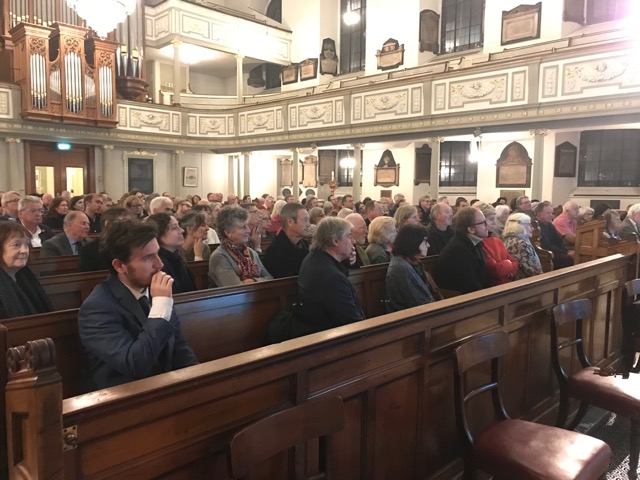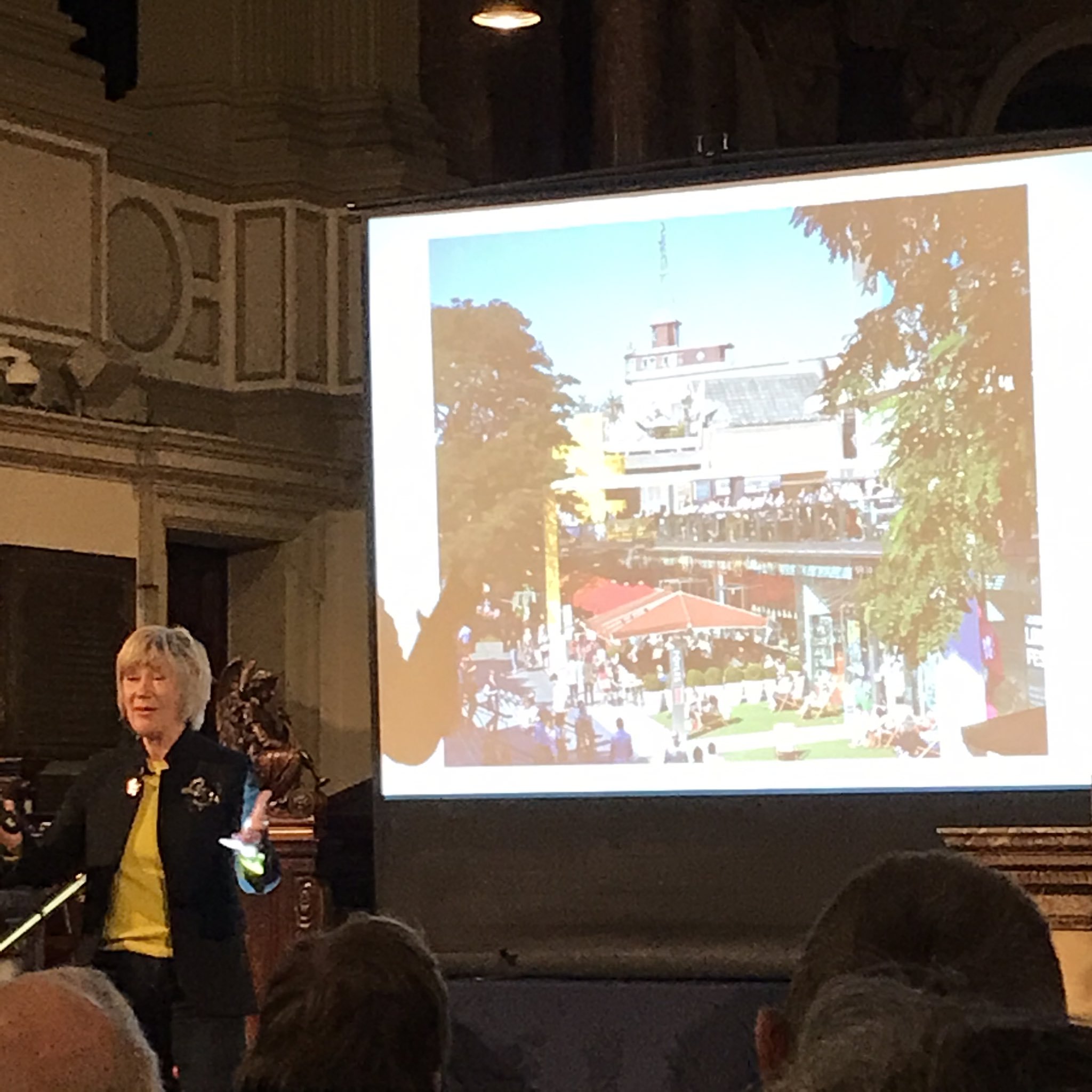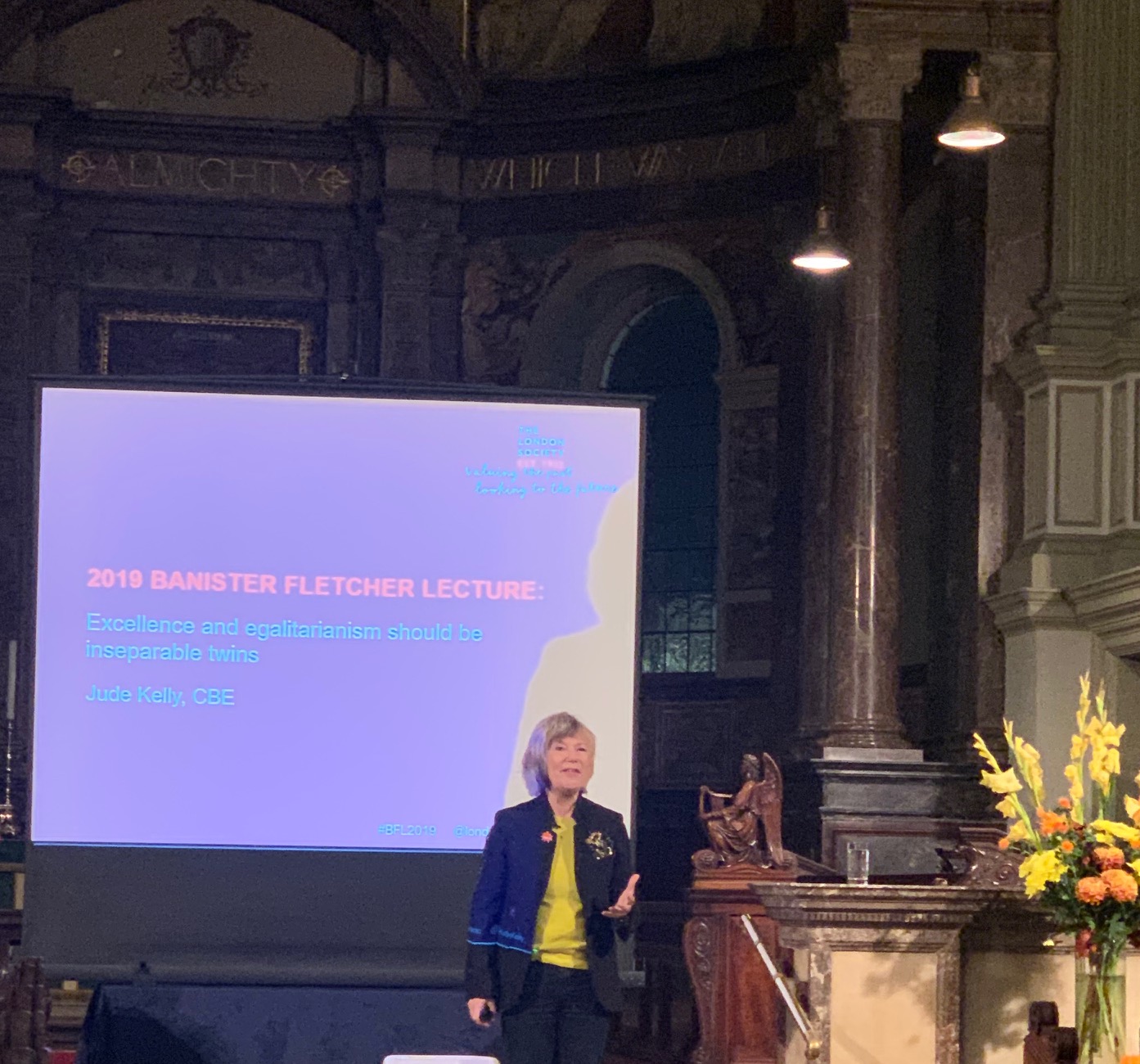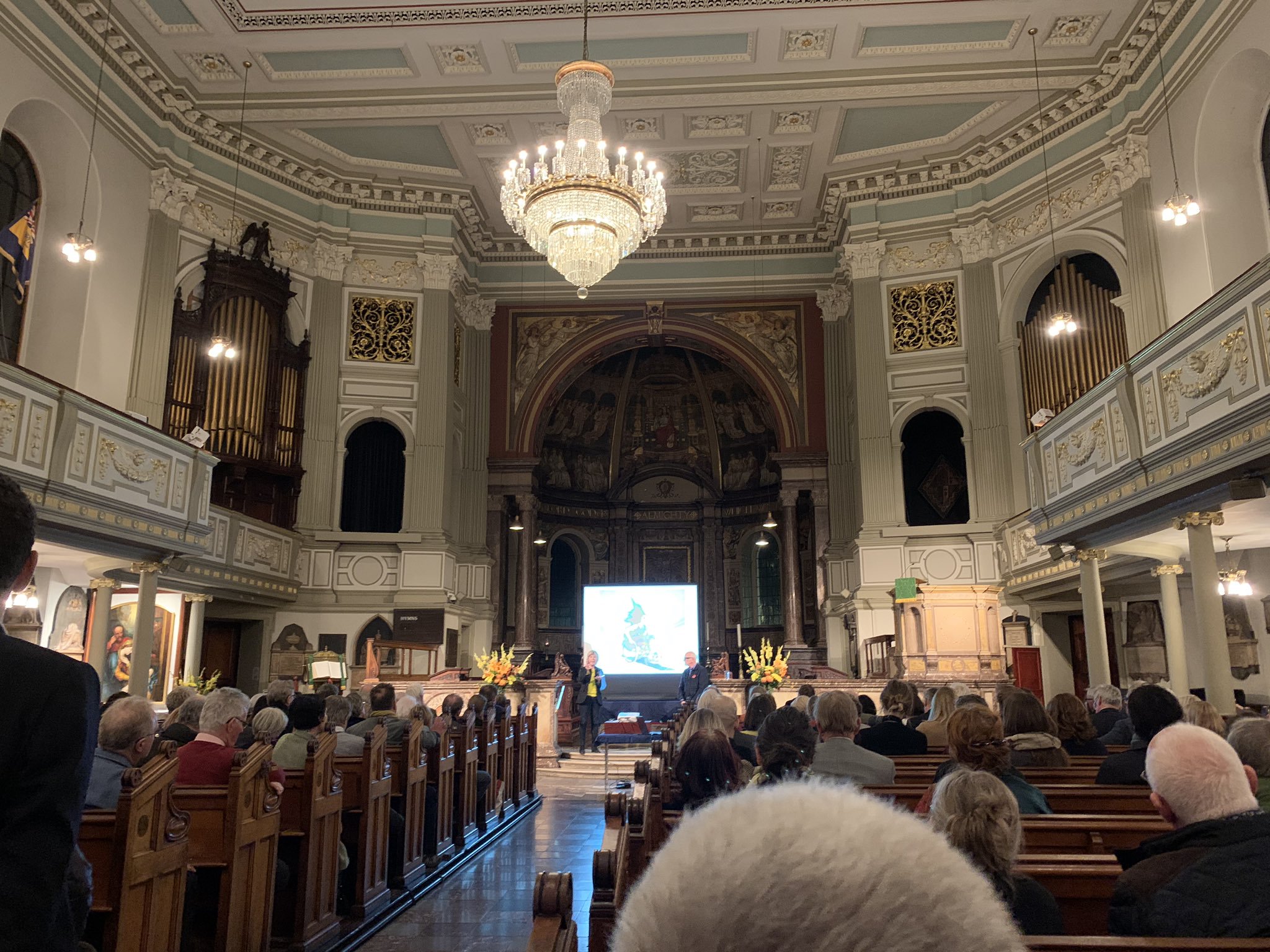Post
REPORT | Jude Kelly and the 2019 Banister Fletcher Lecture
11 Nov 2019
Over 300 tickets were registered for this year's Sir Banister Fletcher Lecture at Marylebone Parish Church. Jude Kelly CBE gave a thought-provoking speech on how to make cultural places more accessible and inclusive in a compelling argument for why "excellence and egalitarianism should be inseparable twins" - Abigail Lane reports..
Kelly opened the lecture by talking about human imagination and its importance in culture, then declaring that her “faith is in human imagination [and that] imagination brings humans into being.”
It was this imagination that influenced her illustrious career. She oversaw the formation of the first BAME and female orchestra, an all-black cast of Othello, became the artistic director of the Southbank Centre in London and, more recently, founded the WOW Foundation (Women of the World) to celebrate female empowerment and highlight gender inequality.
Kelly went on to explain her desire to return the public spaces of the Southbank Centre to follow the ethos established during the Festival of Britain, which aimed to open culture to everyone following the horrors of World War II. Yet it soon became clear that over the ensuing decades this ethos was lost, with Kelly inheriting a concrete shell when she took the reigns as artistic director in 2006.
Guided by the principle that London has a responsibility to make culture available to all and a strong desire to make the centre a place where anyone can access the beauty and the potential of the human imagination, Kelly strove to make the centre more accessible and inclusive. As she asked the audience: “how can you have public spaces left empty in a city like London?”
By asking the important question: just who is allowed into culture, Kelly oversaw changes to the Southbank that opened its doors to the many not the few and contributed to a bigger national discussion of how to make cultural places more inclusive.
Under her careful guidance the centre has been transformed into a thriving multicultural hub where “you can go inside for some classical music and come outside to see a break dancer spinning on his head”. For, as Kelly says, “you can’t have a place that says it is physically for everyone and then fill it with art that is exclusionary.”
This prompted a discussion of the accessibility (or lack thereof) of London venues and highlighted the pertinent need to address this, with the suggestion that “buildings are not just the architecture, they’re the people within them, the people who feel free to enter.” A timely statement then, given the Society’s upcoming focus on public spaces and their accessibility.
The lecture proved to be food for thought for society members. A lively Q&A saw questions raised about the demographic of the London Society itself, and how we can diversify to reflect the society of London today to ensure that Excellence and Egalitarianism really can become inseparable twins.



